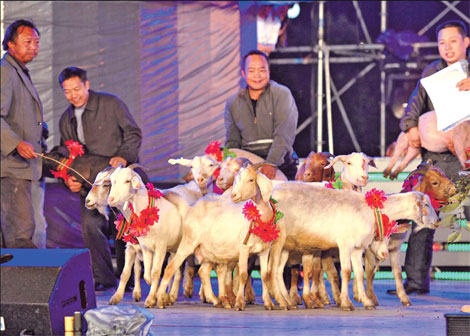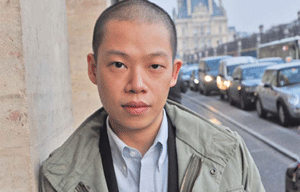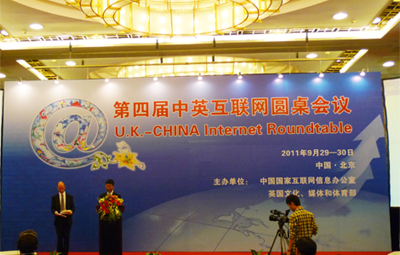Wealthy start to dig deep
Updated: 2011-09-30 11:47
By Xu Junqian and Wang Yan (China Daily European Weekly)
|
|||||||||
An audience of 6,000 was expected for the concert in Guizhou province, but more than 20,000 attended. The singer topping the bill was no rock star but 43-year-old businessman and high-profile philanthropist, Chen Guangbiao. Many of the concert-goers might have turned up anyway for the free livestock and farm tools Chen had promised to give out after the Sept 25 night show in Bijie's city square.
"It was packed. There were fans from Xinjiang, Gansu and Inner Mongolia, holding up posters," Chen said by phone on Sept 26 before catching an afternoon flight to Beijing from Guiyang, the provincial capital.
After the two-hour concert of pop songs, including some he had penned himself, Chen handed over 2,000 pigs, 1,000 sheep and 113 tractors to the Bijie city government, asking that they be given to farmers in need.
"All boars and rams were wearing green flowers, and the sows and ewes were wearing red flowers," Chen says. "I hope people will soon have lambs and piglets at home."
Chen says he will check with the local government in a month's time. "I've asked them to put distribution details online."
After 30 years of unprecedented economic growth, the commercial elite, like Chen, are looking for ways to put their money into the hands of those less fortunate. The methods they choose vary.
In June, Zong Qinghou, ranked by Forbes China as the third richest man in China, told Xinhua News Agency he will set up a family foundation with initial capital of about 2 million yuan (230,700 euros).
The amount may seem paltry compared with his $5.9 billion in assets, but the founder of one of China's largest beverage companies, Wahaha, also says he will set aside part of the annual bonuses he receives from Wahaha's 150 companies and use it as "a continuous capital" for the foundation.
"Mr Zong has been nurturing the idea of setting up a family foundation for years," says Shan Qining, director of Wahaha's communication office. He would not provide further details about his boss' new cause.
Ren Shaoying, also from Wahaha's communication office, says this is not the first time the company has been involved with charitable causes. It has already invested 250 million yuan through the Wahaha Foundation to build schools, help those less fortunate and sponsor teachers to teach in western China.
The Ministry of Civil Affairs has already approved the foundation.
The new family foundation is to administer an internationally recognized prize, similar to the Nobel Prize, encouraging scientific innovation and offering more educational opportunities to underprivileged people.











